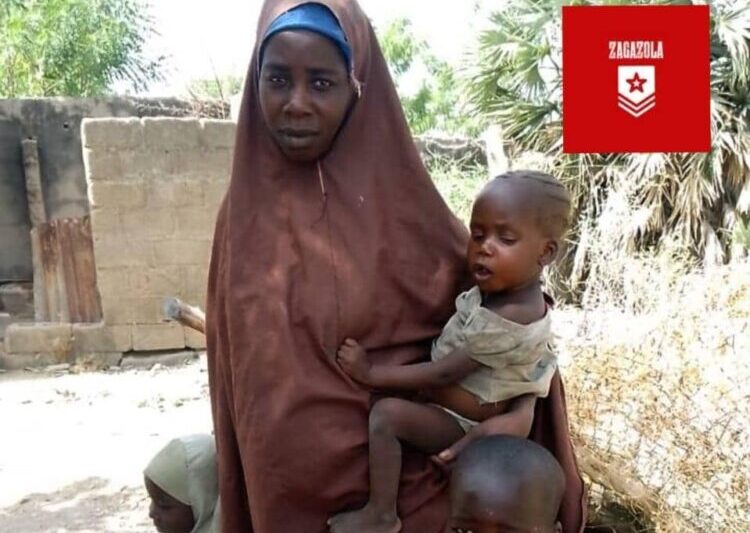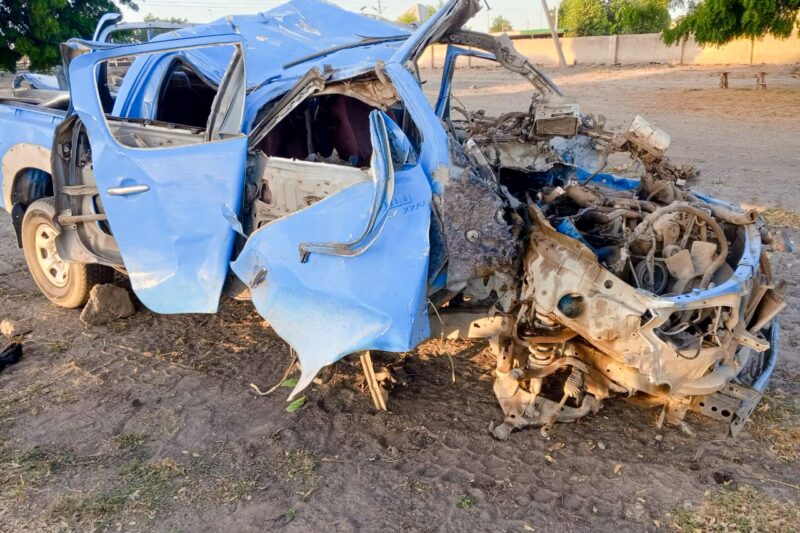The United Nations World Food Programme (WFP) has warned that families living in internally displaced persons’ camps in northeast Nigeria are “knocking on the door of starvation”.
A resident in one of the camps in Maiduguri, the capital of Borno State, said sometimes his “belly is empty for three days or more”.
Residents of most, if not all, the camps in the capital were bordering on starvation and it was particularly hitting the elderly.
They said they had little or no food assistance from the government or non-governmental organisations (NGOs) for four months.
Some of the camps included Gubio, Bakassi, Teachers Village and Muna Camp. But residents in other camps were also suffering
Ahmed Jidda, an 83-year-old man who has eight children and lives in Gubio camp, said: “I am left with an empty pocket and belly because the government and NGOs have not supported us with food assistance and other essentials for four months and I’m too old to work or farm.”
He said before he was displaced people were welcome to visit his house and eat. But now he and his wife were living on scraps in the camp and could not provide for their children.
Modu Bukar Ngaloma, a resident at Teacher’s Village Camp, said: “I sometimes stay three days or more with an empty belly. We have not had help with food for about 60 days.”
He said some residents who had relatives living outside the camp often got help from them. And those with adult children also suffered less.
“But for those of us who lost our children at the hands of the Boko Haram extremists, we are left with no option but to face this hardship on our own and to try to put food on our tables.”
Sources said the food crisis was getting worse every day. And more people were taking shelter in the camps because of the ongoing conflict.
They said the government had promised them that they would be able to return to their original communities and farms by the end of 2021. Apart from food aid, the government should prioritise education, business, farming and the health sector “in its preparation to ease” their lives.
The persistent and vicious conflict with the Jamā’at Ahl as-Sunnah lid-Da’way Wa’l-Jihād (JAS), more commonly referred to as Boko Hara, since 2009, and later from 2016 with members of its highly dangerous breakaway group, the Islamic State West Africa Province (ISWAP), had disrupted livelihoods and forced millions to flee in search of shelter.
In a report published on Friday, October 15, the WFP said the agency might have to cut rations to more than half a million women, men and children in northeastern Nigeria by the end of the month, unless at least US$55 million in new funding was received soon.
“We are facing very severe levels of hunger. This is probably the highest level we have witnessed since the crisis exploded. Approximately 4.4 million people are facing acute food insecurity in the conflict-affected states of Borno, Adamawa and Yobe,” said WFP spokesman Tomson Phiri.
More than a million children were already malnourished, he said.
He said the COVID-19 pandemic had pushed up food prices and limited food supply and that the number of internally displaced people surpassed two million in September – “reaching another grim milestone”.
Chris Nikoi, the WFP’s regional director for West Africa, said that if the aid agency had to cut rations it would mean “choosing who gets to eat and who goes to bed hungry”.
“We are seeing funding for our life-saving humanitarian work dry up just at the time when hunger is at its most severe”, he said, adding that the WFP’s food assistance was “a lifeline for millions whose lives have been upended by conflict and who have almost nothing to survive on”.
“Cutting food assistance will be a painful decision for humanitarians as it will negatively affect children, women and men uprooted from their homes because of the continued violence,” said Edward Kallon, the UN humanitarian coordinator in Nigeria, calling on partners to “step up” support in response to the growing needs.
The report said that for five years, the WFP had provided life-saving food and nutrition assistance to the severely food insecure, displaced families in camps and to vulnerable people living in host communities.
This year, relying on the continued generosity of donor partners, the WFP ramped up its response to address rising food insecurity and the impact of COVID-19, targeting 1.9 million displaced people in the country.
However, to sustain humanitarian operations in northeast Nigeria until March 2022, the WFP urgently needed US$197 million.
“We must act now to save lives and avoid disruptions to this lifeline,” Nikoi said.








